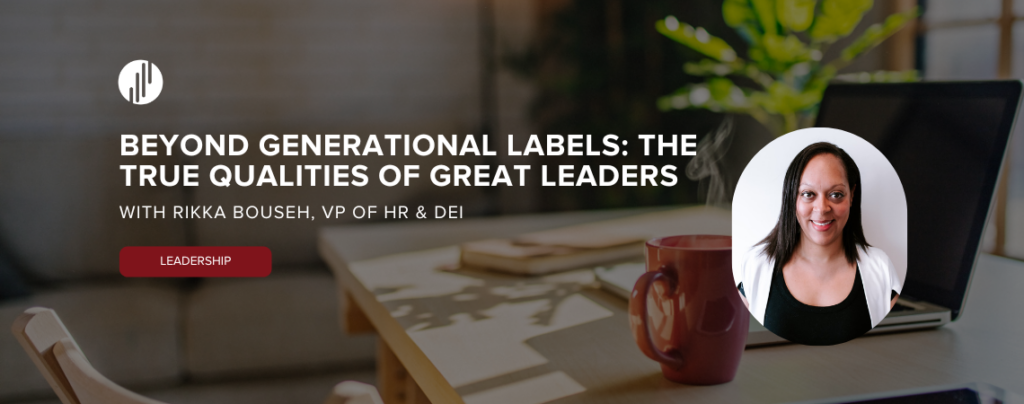
We’ve all heard the stereotypes: Baby Boomers are set in their ways, Millennials are entitled, and even that Gen Z is the most challenging generation to work with. But when it comes to leadership, these generational labels might be doing more harm than good.
Breaking Down Generational Barriers: Building Leaders for the Future
Our hot take? Effective leadership transcends generational boundaries. We asked Rikka Bouseh, VP of DEI & HR, for her insights on the topic, and she shared that core competencies such as communication, decision-making, problem-solving, and empathy are universal. These skills are essential for building strong teams, fostering innovation, and achieving organizational goals.
“Every generation requires the same training. Leadership requires the same skill sets, and we need to empower the next generation. Everyone needs to learn those skill sets in order to move into them.” – Rikka Bouseh, VP of HR & DEI
At Envol, we focus on prioritizing creating a culture that attracts and retains top talent, instead of focusing on the superficial differences between generations. This involves building a culture rooted in defined company values, fostering open communication, creating a supportive and inclusive work environment, and providing our people with opportunities to grow, develop, and (most importantly) make a real impact.
“Employers need to create cultures for the types of people that they want to employ. They need to attract the people that have those skills, attributes, and personality types that lend to the success in the roles they’re hiring for – regardless of age.” – Rikka Bouseh, VP of HR & DEI
The data shows that when individuals are aligned with an organization’s culture and have a clear path for advancement, they are more likely to thrive, regardless of their age.
Focus on Leadership Development, Not Generational Labels
Rather than investing time and resources in understanding the intricacies of generational differences, organizations should concentrate on developing their employees’ leadership potential. This involves providing comprehensive leadership training programs that focus on practical skills and real-world challenges.
“As we promote people, we need to make sure that we are providing them with the proper training so that they become effective leaders.” – Rikka Bouseh, VP of HR & DEI
To help your managers evolve into leaders, try these strategies:
- Equip managers with essential tools. Offer training in areas such as communication, conflict resolution, performance management, and strategic thinking.
- Create a culture of continuous learning. Encourage employees at all levels to develop their leadership skills through mentorship, coaching, and professional development opportunities.
- Foster a growth mindset. Emphasize the importance of learning from failures, embracing challenges, and seeking feedback.
By focusing on leadership development, you’ll build a pipeline of talented individuals who can adapt to changing times and drive business success.
The Bottom Line: Leadership is Timeless
Let’s recap the key takeaways to keep top of mind:
- Core leadership skills are universal. Whether you’re a seasoned professional or just starting out, effective leadership requires a strong foundation of communication, decision-making, and people management.
- Culture trumps generation. Successful organizations create environments that attract and retain the right people, regardless of their age. It’s about finding individuals who align with your company’s values and goals.
- Train your managers to become effective leaders. As Peter Drucker once said, “Management is doing things right; leadership is doing the right things.” Invest in comprehensive training programs that equip managers with the tools to become effective leaders; to inspire, motivate, and guide their teams toward success.
While generational differences may exist, they shouldn’t define your leadership approach. Effective leadership is about inspiring and empowering others, building strong relationships, and achieving results. These qualities are timeless and transcend generational boundaries.
By shifting the focus from generational labels to leadership development, you can create a more inclusive and high-performing workplace.
Want to level up your managers from where they are now to great leaders? We can help!